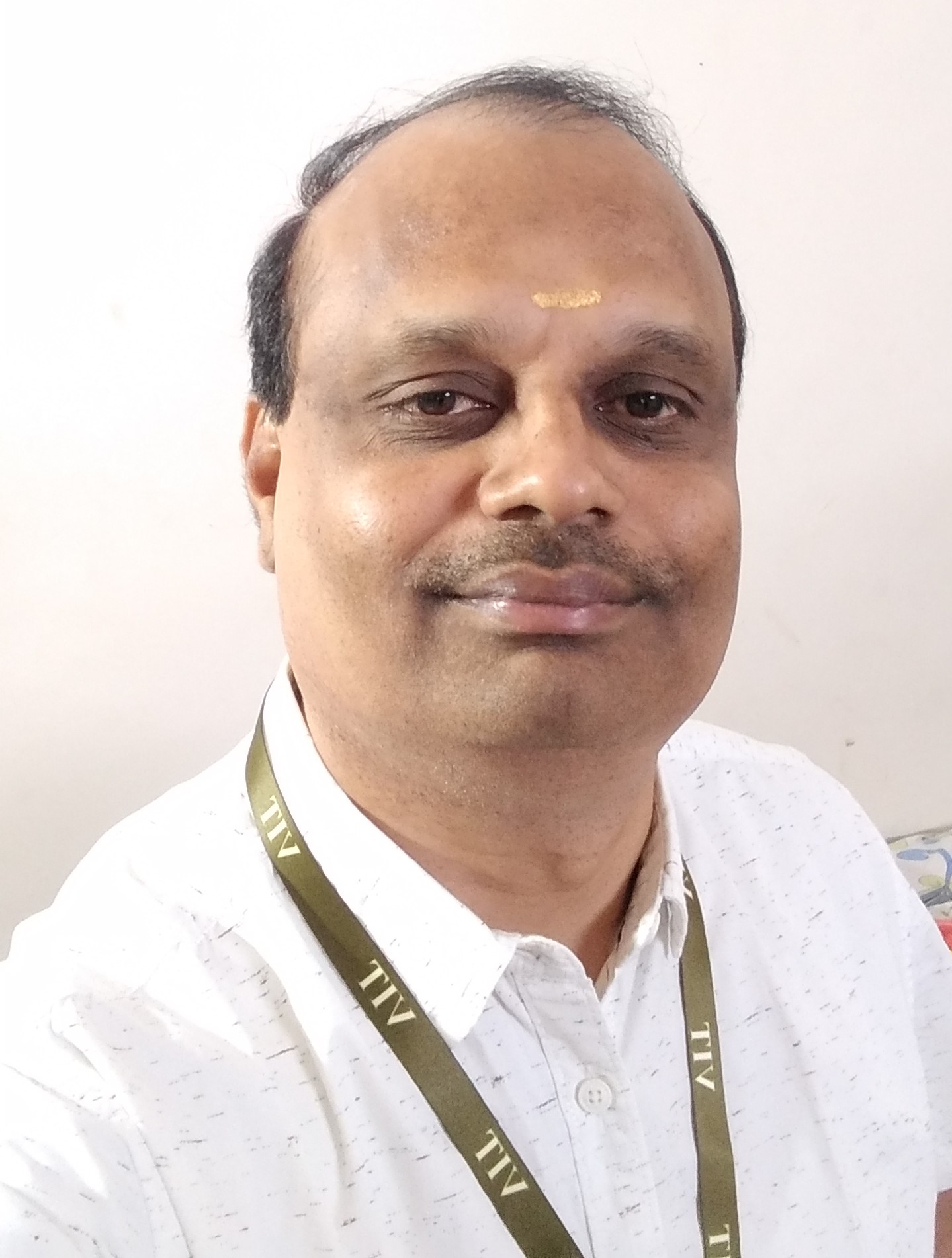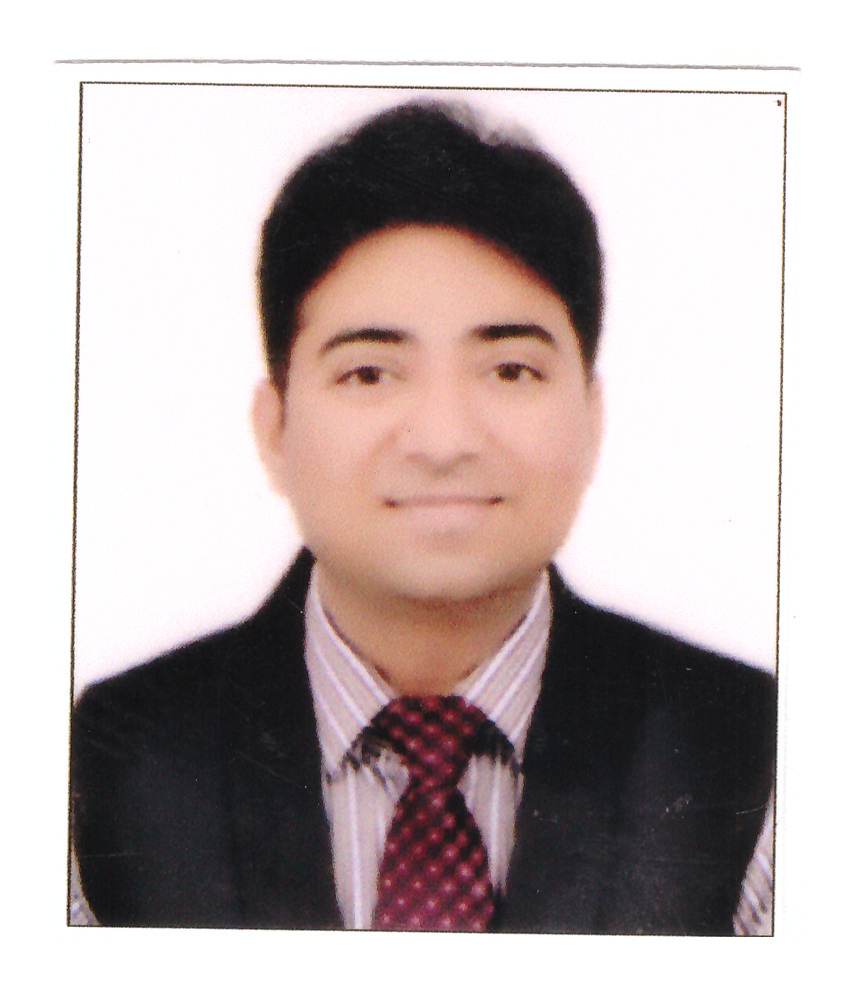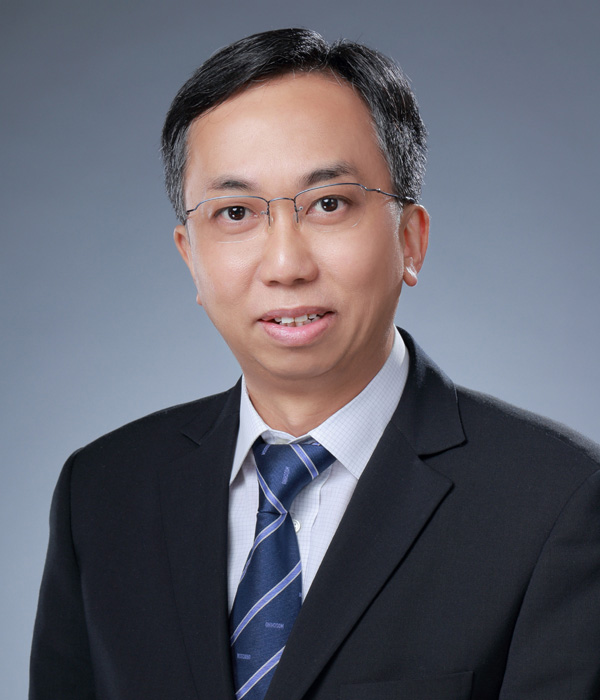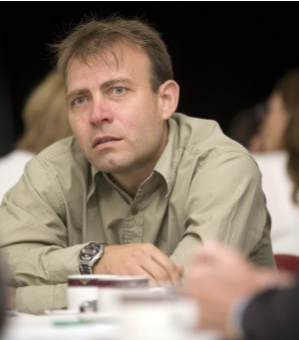
Dr Sivakumar R,Professor and HOD, Department of Sensor and Biomedical Technology, Vellore Institute of Technology,
Sivakumar received a Bachelor of Engineering in Electronics and Communication Engineering from Bharathiar University, and the Master of Engineering and PhD degree in Information and Communication Engineering from the College of Engineering Guindy, Anna University, Chennai, India. His research interests include Bio Signal Processing, Medical Image Processing, wireless body sensor networks, and VLSI. He has published over 100 journal and 70 conference papers over the last several years. He has taught a wide variety of Electronics courses including Digital Image Processing, Multimedia Compression Techniques, VLSI Design, Medical Electronics, and Electronic Circuits. Dr Siva is a life member of the Indian Society of Technical Education and a senior member of IEEE. Dr Siva has been invited to deliver Keynote Speech and Chair at various International conferences

Dr. Saifullah Khalid, Visiting Researcher, School of Mechanical & Aerospace Engineering (5th in the world- QS Subject Ranking 2021), Nanyang Technological University, Singapore
Dr. Saifullah Khalid is an experienced specialist working in the fields of optimization algorithms, aircraft system, active power filter, and innovation. He currently holds the post of Senior Manager at CCS Airport, Lucknow, India, and Leading the Team of R&D members at CCS Airport, Lucknow, under the Civil Aviation Research Organization, India. He is also Visiting Researcher at School of Mechanical & Aerospace Engineering (5th in the world- QS Subject Ranking 2021), Nanyang Technological University, Singapore. Dr. Khalid’s background is in the invention of novel optimization algorithms. He has invented four novel optimization algorithms Adaptive Lizard Foraging Algorithm (AALF), Adaptive Spider Net search Algorithm (ASNS), Adaptive Mosquito Blood Search Algorithm (AMBS), and Adaptive blanket body cover search algorithm (ABBC). He knows Python, C++, and MATLAB/Simulink. He has received the Best Innovation Award and Outstanding Scientist Award at International Best Scientist Awards, 2021, Best Researcher Award at 11th International Scientist Awards on Engineering, Science, and Medicine, 2020, INDIA, Outstanding Scientist Award at International Best Scientist Awards, 2020, and best paper award in National Conference on Technological Revolution in Electrical Engineering 2014 (TREE-14), held at GBPEC, Pauri, UK, INDIA. He is Fellow Member, Universal Association of Computer & Electronics Engineers (UACEE), USA, Franklin Member of London Journals Press, London, Senior Member of International Association of Computer Science and Information Technology (IACSIT), Singapore, International Association of Engineers (IAENG), and IEEE.

Dr Simon CHEUNG King-sing 張景勝博士,Director of Information Technology, Information Technology Office, Hong Kong Metropolitan University, China
Dr. Simon K.S. Cheung obtained his BSc and PhD in Computer Science from the City University of Hong Kong, and his Master of Public Administration with Distinction from the University of Hong Kong. A Chartered Engineer and Chartered Scientist by profession, Dr. Cheung has been admitted as a Chartered IT Professional Fellow of the British Computer Society, Fellow of the Chartered Management Institute, Fellow of the Institute of Mathematics and its Applications, Fellow of the Institution of Engineering and Technology, Fellow of the Hong Kong Institution of Engineers, Fellow of the Hong Kong Computer Society, and also Senior Member of the Institute of Electrical and Electronics Engineers. Dr. Cheung is currently the Director of IT in the Hong Kong Metropolitan University, overseeing the university IT services for teaching, learning, research and administration. He has been working in the higher education sector (with the Hong Kong Metropolitan University, the Open University of Hong Kong, the University of Hong Kong, the Hong Kong Baptist University, and the Chinese University of Hong Kong) for over 30 years in various administrative capacities, mainly in IT and educational technology, while also assuming some academic duties such as course development, teaching and research. He has successfully led a number of key initiatives and projects, pertaining to enterprise systems, business process reengineering, campus IT infrastructure, electronic library, learning commons, blended learning, academic analytics and student advising. He played a pivotal role in implementing ERP systems in the Open University of Hong Kong, and deploying blended learning in SPACE, the University of Hong Kong, which won prestigious awards such as the Hong Kong ICT Award (Best Business Solutions) Special Award. Dr. Cheung is active in research, with over 200 publications in the form of books, book chapters, journal articles and conference papers in two distinct areas, namely, innovation and technology in education, and software and systems engineering, and has been serving in the advisory board and editorial board for a number of international journals. He received the Outstanding Research Publication Award from the Hong Kong Metropolitan University, the 1st Class Achievement in Computer Science and IT Award from the Shenzhen Science and Technology Association, the Outstanding CIO Award from the Hong Kong IT Joint Council, and the Honouree for IT Excellence, the CIO Award from the CIO Asia.

Dr Neil A. Gordon, University of Hull, UK
Neil Gordon is a reader in Computer Science. He has research interests at the interface of mathematics with computer science, particularly in the areas of finite geometry and its applications and in formal approaches. He is also an advocate for the effective development and use of technology for teaching, especially in higher education, and has worked on a number of projects with the AdvanceHE. After a joint degree in Mathematics and Computer Science, he went on to complete a PhD in Applied Mathematics (Finite Geometry and Computer Algebra, with Applications). This was followed by work as a Research Assistant, initially on geometry and group theory, and later on solving differential equations and their applications in mathematical physics.